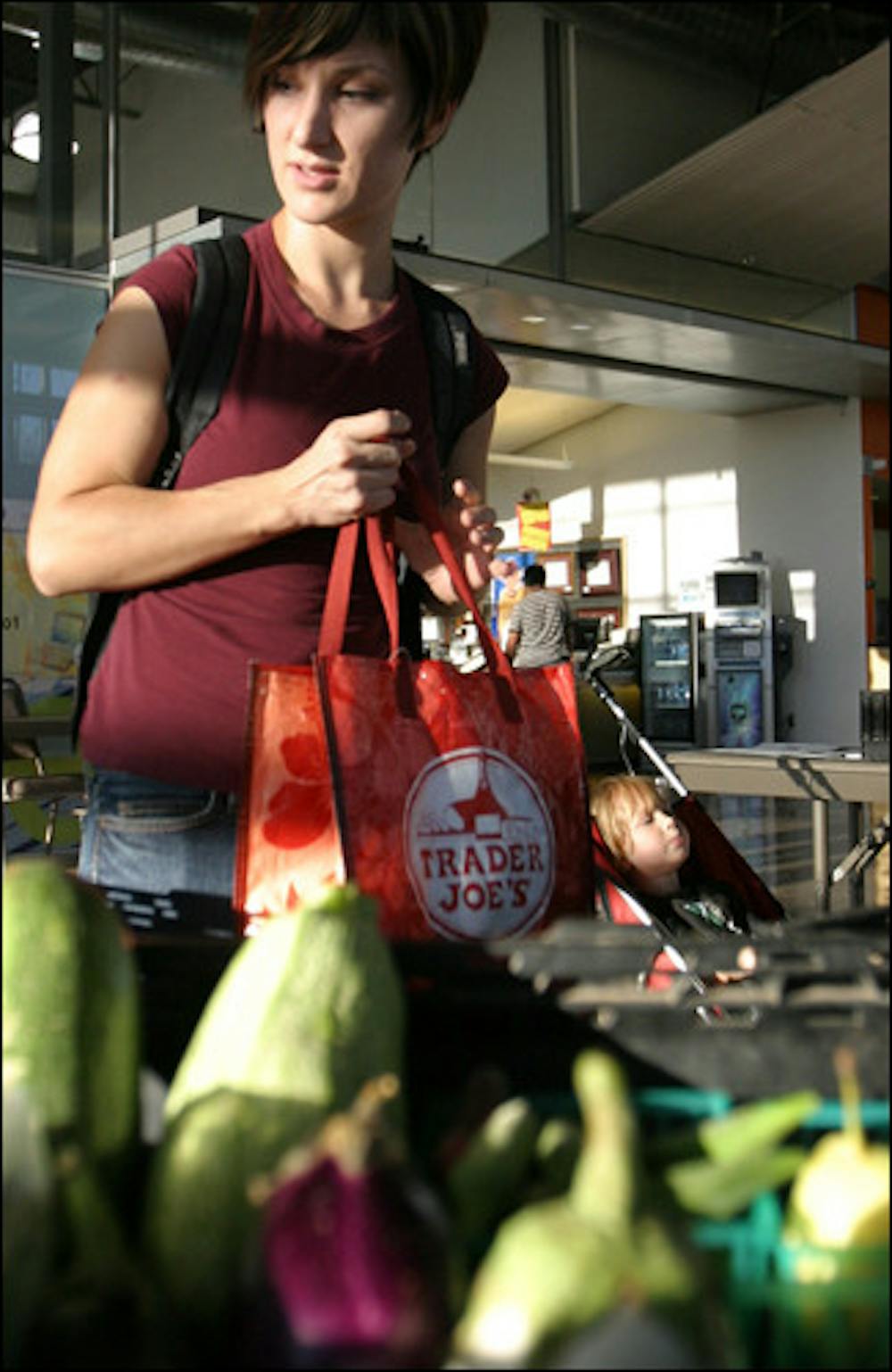About six months after becoming a faculty member in the nutrition department at the Polytechnic campus, assistant professor Christopher Wharton has made ASU greener by starting a community-supported agriculture-share program.
The PolyHarvest farmers market, established in January, has become a weekly event on the campus that allows ASU students, staff and faculty — as well as local community members — to support Valley grower Crooked Sky Farms.
“The benefits of a community-supported agriculture-share program enriches the community in a few ways,” Wharton said. “First of all, it allows the customers to invest in local farms.
“They pay in advance, taking some of the risk of farming, and this helps the farmer deal with some of the variables in agriculture. This also keeps the money in the Valley’s economy, instead of paying a huge corporation in another state.”
To get involved, community members prepay $20 per week for a 12-week session and get five units of produce each week. Examples of a unit of food are a basket of pears or five sweet potatoes.
“The program has nurtured interactions between ASU and the surrounding the community, which is one of President Michael Crow’s goals for the University,” Wharton said.
Wharton earns a dollar for each share of produce purchased, which he puts toward educational programs that integrate ASU into the local community for more than Thursday afternoons at the farmers market.
Programs include a showing of “The Dirt on Farmer John,” a documentary about an organic farmer, a lecture by Eric Schlosser, author of “Fast Food Nation,” and cooking demonstrations by the owner and a chef from the Queen Creek Olive Mill restaurant, which sells only locally grown food.
Wharton said he is hopeful he will receive a grant from the U.S. Department of Agriculture to help him further his efforts. With the grant money he plans to form a statewide association for farmers markets allowing them to work together to develop better advertising methods and get liability insurance.
“We’re the sixth-largest state in country, and we have farmers markets everywhere. They are hundreds of miles apart and don’t have much communication,” Wharton said. “The funding will help coordinate all these markets, as best we can.”
Nutrition sophomore Sarah Griswold has had courses with Wharton and said because of his strong push to promote locally grown foods, she has developed an interest in eating organic and locally grown foods without hormones, antibiotics or chemicals.
“Think about when we add antibiotics to our foods, and then it gets in our system when we eat it,” Griswold said. “Many viruses today are becoming resistant to antibiotics because we’ve been putting them in our foods for the last 40 years, so when we try to cure something with them, it doesn’t work these days.”
Griswold also said she feels like she invests in her community when purchasing locally farmed produce.
“It’s cool to be helping promote small farms, where I know the working conditions are better than in large corporations, as well keeping my money in my community,” Griswold said.
Reach the reporter at amy.fleishans@asu.edu.




